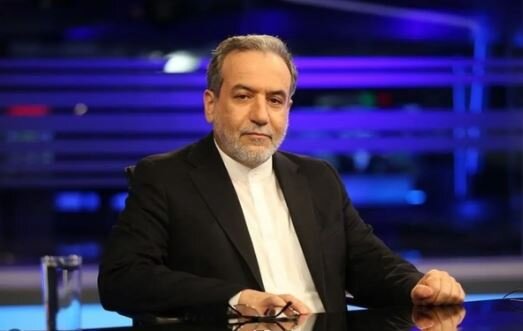Araghchi warns Israel against further aggression as Iran gears up for retaliation
Araghchi warns Israel against further aggression as Iran gears up for retaliation
TEHRAN – In a televised interview on Saturday, Iran's Foreign Minister Abbas Araghchi issued a stark warning to the Israeli regime regarding the consequences of any further aggression against Iran, particularly targeting its nuclear facilities.

"Whenever the Zionist regime takes action against the Islamic Republic, we will respond with comparable and proportionate measures," Araghchi stated firmly. "They are fully aware of the repercussions if they attack our nuclear installations."
He further highlighted that Tehran has reported multiple Israeli threats against its nuclear sites to the International Atomic Energy Agency (IAEA), underscoring the gravity of the situation.
Araghchi also addressed his recent regional diplomatic efforts, undertaken during a time of heightened Israeli aggression across West Asia. He emphasized that these trips demonstrated Iran’s unwavering support for Resistance movements and reaffirmed the country’s resilience and commitment to its objectives.
"The visits served to counter the regime’s propaganda aimed at discrediting the Resistance and diminishing its capabilities," Araghchi said. He noted that his travels to nations like Iraq and Lebanon allowed him to assess the situation firsthand and confirm the Axis of Resistance’s continued strength and societal support.
The trips also fostered a shared understanding among regional nations about the broader threats posed by Israel, whose ambitions, Araghchi warned, extend far beyond Gaza and Lebanon. "The regime seeks to drag the entire region into a devastating war," he cautioned, urging regional leaders to remain vigilant.
Turning to the IAEA, Araghchi criticized the "political approach" influenced by Western nations seeking to pressure the agency into taking a harder line against Iran.
"The IAEA is a technical organization and must refrain from politicizing its actions," he said. Araghchi warned that any resolution targeting Iran’s nuclear program would prompt new measures by Tehran, which, he added, "they will not be pleased with."
Despite the criticism, Araghchi reaffirmed Iran’s professional and cooperative stance towards the IAEA, provided the agency adheres to its technical mandate. "Our nuclear program is peaceful, and we have no issues proving this through cooperation," he asserted.
Addressing the 2015 nuclear agreement, formally known as the Joint Comprehensive Plan of Action (JCPOA), Araghchi reiterated that Iran had ceased fulfilling its obligations following the United States' unilateral withdrawal in 2018 and the European signatories' failure to compensate for the breach.
He hinted at the possibility of resuming negotiations with European countries to revive the agreement, but warned that the JCPOA could not return to its original form. "It can only serve as a reference point for future agreements," he said, emphasizing that time was running out due to the impending expiration of UN Security Council Resolution 2231 next October.
"If no agreement is reached before that deadline, we will face critical conditions," Araghchi cautioned.
Iran is ready to engage in meaningful negotiations but remains prepared for all scenarios, Araghchi stated. "We are prepared for either confrontation or interaction," he remarked, highlighting Iran’s resilience in the face of Israeli aggression.
He reiterated Iran’s right to self-defense following recent Israeli attacks, asserting, "We alone will decide the timing and manner of our response."
In the early hours of October 26, Israeli warplanes launched several air-to-ground missiles at Iranian military positions. While the Israeli aircraft were unable to penetrate Iranian territory, they caused limited damage to certain radar installations and resulted in the tragic loss of five lives, including four air-defense personnel from the Iranian Army and one civilian.
Israel’s attack against Iran came 25 days after Tehran launched a barrage of 200 ballistic missiles at the occupied territories, successfully targeting several of the regime’s military and intelligence sites. The operation dubbed “True Promise II” was a response to a series of Israeli terrorist attacks martyring a number of high-ranking Resistance figures.
Commenting on the evolving U.S. administration, Araghchi observed no significant shifts in Washington's policies toward Iran thus far. However, he emphasized that Tehran would adjust its strategies based on the U.S.'s future actions.
"What matters is not their rhetoric but what they implement in practice," he said, affirming Iran's commitment to safeguarding its national interests.
In his closing remarks, Araghchi reinforced Iran’s readiness to navigate the complex geopolitical landscape while defending its sovereignty and principles.
source: tehrantimes.com